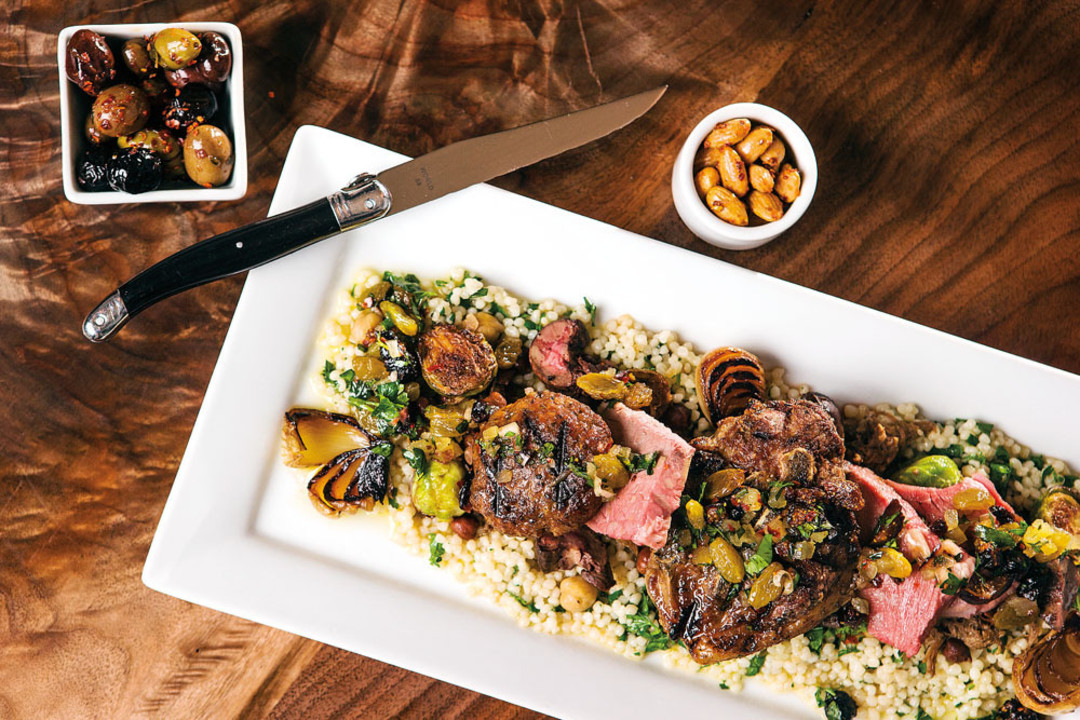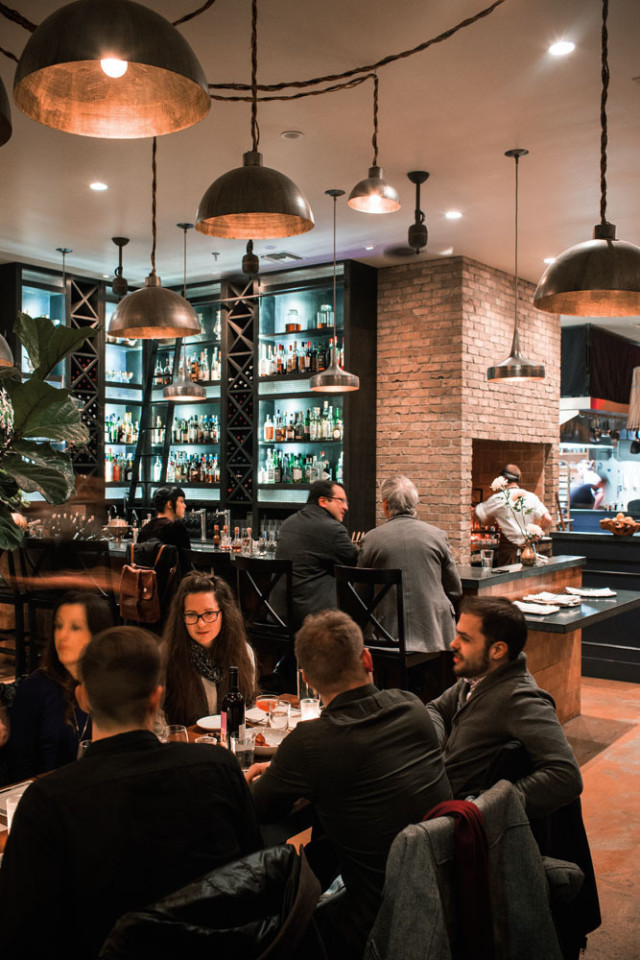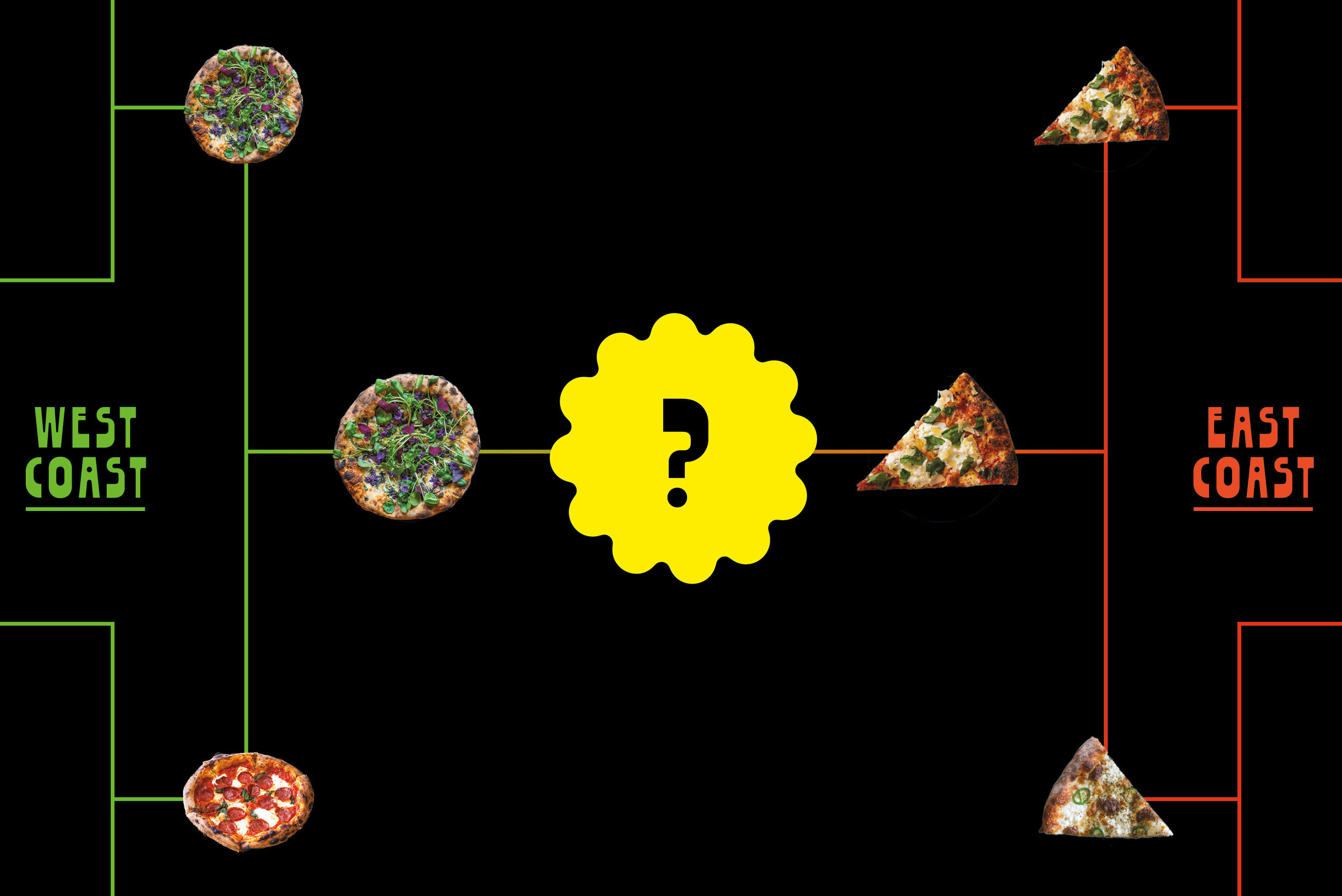Mideast Muddle at Levant

Levant’s signature lamb “four ways,” served over couscous and garbanzo beans with brussels sprouts, cipollini onions, and raisins
Image: Leah Nash
A year ago, an East Burnside storefront was poised as Portland’s next food temple. Inside, under the watchful eye of babushka-wrapped bubbes photographed in the old country, stood the promise of souk-like lamps, the vast maw of a brick hearth, drinks fizzing with black sesame syrup, and chopped-liver toast winking with Manischewitz. With Levant, former Wildwood cook Scott Snyder aimed to claim uncharted territory, remixing his Sephardic Jewish roots with French techniques and modern plating. His back pocket held two aces: local diners game for adventure, and a growing buzz that Fertile Crescent cooking would be the Next Big Thing. A kitchen rummaging through forgotten pantries? A brave new world of tang, crunch, and dates? We were ready to hop aboard. But sadly, so far, Levant has only transported us to a Hilton Hotel dining room on a Middle Eastern night.
Not everyone will agree with this assessment. Levant has attracted fans and critical raves. High notes include a cozy bar for playful cocktails, well-chosen wines, and the occasional dish that shows a kitchen in gear, including a sumptuous heap of lamb considered four ways, rib to neck, juicy to blistered. But five visits and 12 months later, I’ve found little magic, vision, or consistency. The food looks pretty, but lacks courage and conviction. The things that render Middle Eastern food irresistible—the vibrant juxtapositions, the fierce rusticity—are nowhere to be found, much less the will to reinterpret them.

Levant's dining room and bar
Image: Leah Nash
A plate-long purée, a vertical arrangement, a sprinkling of red pepper—this, in a cold schmear, is the tale of Levant. To begin, fava bean falafel, hard as helmets, arrives on a landing strip of tahini. The accompanying drizzles of zhoug, typically fragrant and fiery, couldn’t power a birthday candle. Your $4 stack of pita bread, oddly pounded in musky spice, lacks simple beauty and golden puff. Handheld lamb “cigars” crackle with sweet-spiced meat, but the advertised chile fire was extinguished way back when.
Speaking of fire, what are those insistent flames doing in the open kitchen? Levant’s brick hearth might as well be the televised Yule log. I’ve yet to encounter a memorable smoky char or even a crinkled vegetable skin. Meanwhile, the sea doesn’t part for Levant’s timid fish story. Beautifully crisped sardines hold enough bones to cure osteoporosis and little else. “Spiced, crispy squid” shows up as lifeless forms on the plate, tortured with something called “yogurt tahini remoulade.” And so it goes throughout the menu—a blandness here, a botch there. Desserts are no exception: date and nut torte dry as the Gobi desert, labneh-iced persimmon cakes tasting like a salt mine.
Salads can be equally deflating. Not bad, mind you, but like much of the cooking here, dull pretenders to the throne. Roasted beets with candied walnuts, goat cheese, and honey vinaigrette or sliced pears and celery garnished in “savory za’atar and hazelnut granola” can’t mask what Levant is at heart: seasonal Northwest dishes masquerading as Eastern Mediterranean concepts. It’s Wildwood, with harissa.
Every restaurant needs to make a choice. What do you stand for? Levant’s passions and predilections are still a mystery. The kitchen could vault by simply committing to a direction, any direction—regional street foods, game-changing mezza plates, nights of fine dining backed by more informed service. Right now, this is shallow food posing as something we should take seriously. Even the gimmicky dinner knives, which stand on their backs but are otherwise useless, don’t cut it. Most important, Levant needs a bottom line: make it taste good. Otherwise, we’re left to wander in the desert at this place, searching for the promised land.




